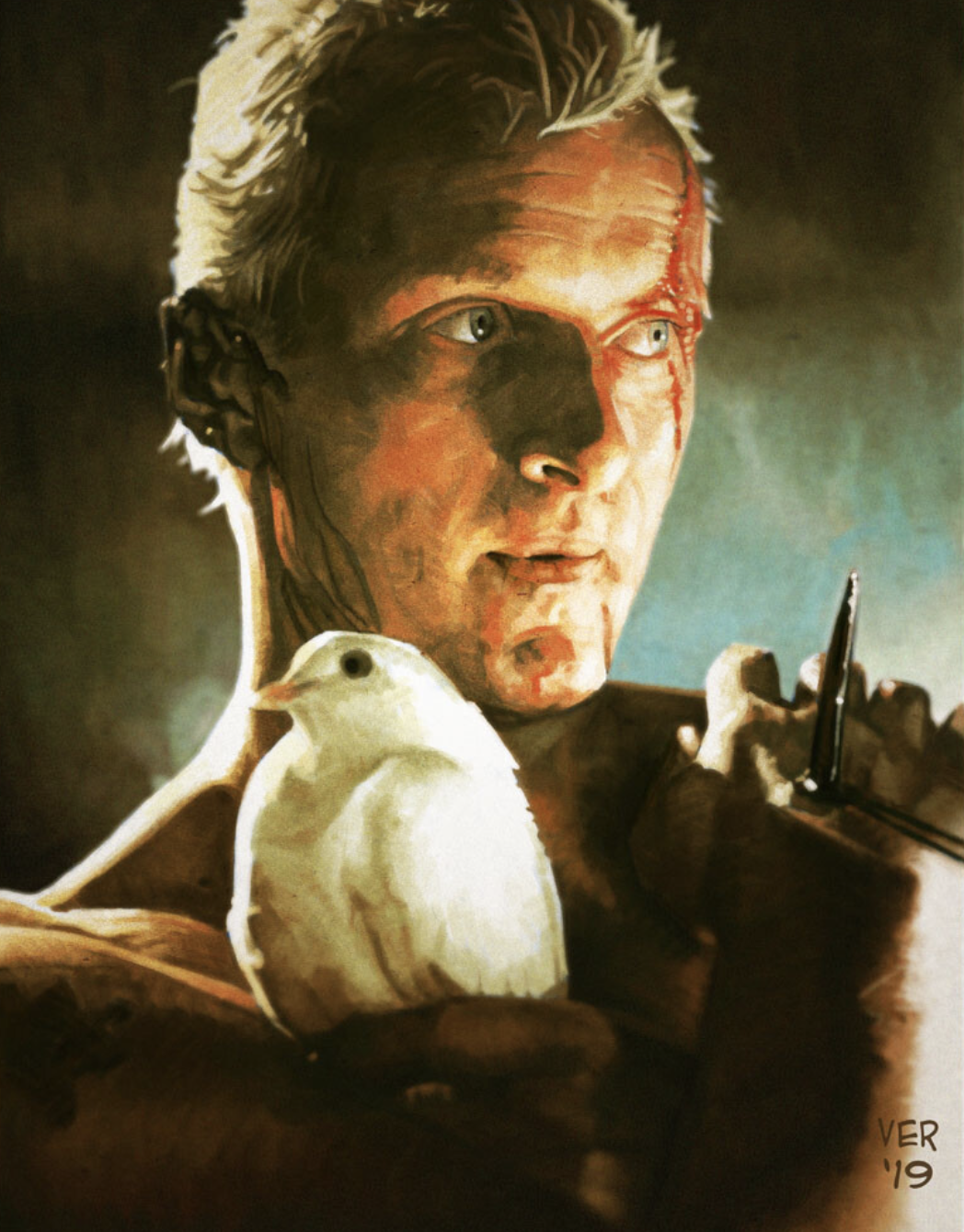Blade Runner & Philip K. Dick
In my opinion, out of all the films we've watched, Blade Runner has most successfully made robots "human". Sure, the replicants have their inhuman strength and abilities; they are the perfect rendition of the uncanny valley. Yet, what the replicants want is something all of us can relate to: they want to live. How can replicants have no understanding of humanity if they so desperately want to live, to exist, to thrive? The main replicants—Roy and Pris—both do whatever they can throughout the film to gain survival, and I think their barbarity is one of the most human elements about them. It reminds me of William Golding's novel The Lord of the Flies. Like the young boys in the novel, Roy and Pris have fallen to hunting and killing humans to stay alive. They are barbaric, yes, but so are humans.
What struck me the most about the film was the final quote from Roy, what we based our project on:
“I’ve seen things you people wouldn’t believe. Attack ships on fire off the shoulder of Orion. I watched C-beams glitter in the dark near the Tannhäuser Gate. All those moments will be lost in time, like tears in rain. Time to die.”
While I myself see the human aspects of the replicants, overall, I think Ridley Scott—the director—tried to show the viewer that replicants are uncanny, robotic, and scary. On the surface, they are presented untrustworthy, and will do whatever they have to to stay alive. Yet, this quote from Roy uproots this entire idea; while replicants may be different than humans, Roy shows that they also feel the fear of ideas lost. When a human dies, so do their immense ideas and imaginations. Roy was aware of this fact, and dreaded his unbecoming moments before he became a part of the vast void that is death. It was a poetic, beautiful ending to a captivating film.
In a similar fashion, author Philip K. Dick takes radical science-fiction related ideas, and turns them into stories that can be widely interpreted. According to Dick's biography, he went through many tragedies that shaped him; his twin sister died, and he went through many bad marriages. On top of this, he also became addicted to drugs before his creative explosion in the 60s. These are all things that can inspire someone to think critically about one's society, which Dick definitely did. That is obvious in his short stories, especially the one we read for class, "Do Androids Dream of Electric Sheep".
Dick's writing style reminds me of Ray Bradbury's, the author of the critically acclaimed Fahrenheit 451. Both authors uniquely dive into issues with technology, and both tie to how that is connected to humanity; Blade Runner successfully does this as well.





Comments
Post a Comment